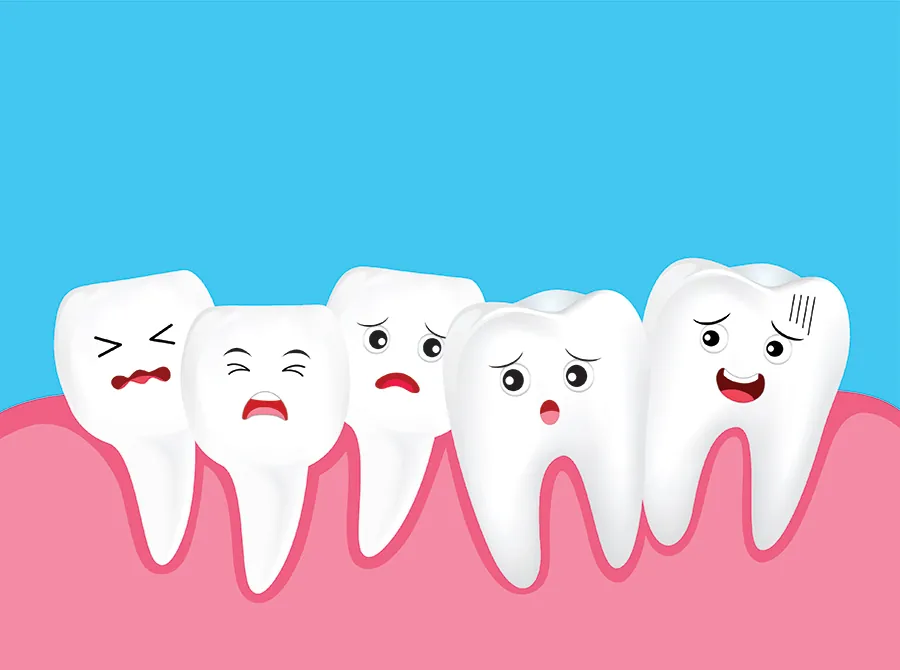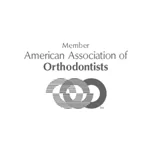Effects of Thumb Sucking on Children’s Oral Health
Thumb sucking is a natural part of self-soothing for many infants. Some even begin sucking their thumb or fingers in the womb. Thumb sucking is a way for babies to relax themselves and fall asleep. According to the American Dental Association, most children stop thumb sucking somewhere between two and four years of age.
But, is thumb sucking bad? This article will explore questions like, “what are the side effects of thumb sucking” and discuss problems the habit can cause with infants’ mouths and the alignment of their teeth.
How Does Thumb Sucking Damage Teeth?
Active thumb sucking where the child is moving the thumb around in the mouth a lot can do damage to the baby teeth. In extreme cases, the side effects of thumb sucking can cause misalignment of your child’s permanent teeth and affect the jaw or the mouth’s shape or roof.
According to the American Dental Association (ADA), by age four parents should discourage their child from thumb sucking because this is when it can begin to negatively affect their mouth and cause permanent teeth to be misaligned.
Breaking the habit of thumb sucking before your child’s permanent teeth erupt is important. The thumb sucking effects can include the following:
- Delayed speech development or speech impediment: Severe malocclusions and poor tongue control from thumb sucking can result in a lisp or difficulties with S, Z, L and R sounds.
- Palatal narrowing (mouth doesn’t grow to full size): The reoccurring pressure from the excessive sucking motion causes the teeth to shift in an unnatural direction, affecting the child’s overall facial structure.
- Malocclusion and bite issues: malocclusion is a misalignment of the upper and lower teeth known as an open bite or overbite.
- Calluses on the fingers or thumb
- Social issues: A child’s prolonged thumb sucking habit can create teasing among peers.
In a crossbite, a common negative effect of thumb sucking, the upper jaw is pulled forward and lifts the front teeth open. Research shows that the longer a child sucks her thumb, the worse the incidence of crossbite.
- Stopped thumb sucking at age 1: 5.8% of kids experience crossbite
- Stopped thumb sucking at age 2-3: 13% of kids experience crossbite
- Thumb sucking past age 4: 20% of kids experience crossbite
Is thumb sucking bad? The answer is that thumb sucking can be bad for your child’s teeth and mouth if the habit continues for a long time. Encouraging your child to stop sucking on a finger or thumb may be all you need to do to help your child quit the habit during the day. Breaking the nighttime thumb sucking habit can prove more difficult to correct as it is used as a sleep agent and comfort mechanism. That being said, there are still ways you can help your child stop thumb sucking.
How To Help Break the Habit
When kids suck their thumb, the pressure of the cheek muscles combined with the thumb pushing on the front teeth constricts the posterior teeth and can cause a crossbite.
“The longer [thumb sucking] continues, the greater effect it can have on the growth of the teeth, jaws, bite and even the face itself,” said Dr. Kami Hoss, author of If Your Mouth Could Talk and dentist at The Super Dentists.
Stopping this habit early is the best because treatment options for thumb sucking get worse the older the child gets.
Here are a few helpful ideas to help our child abandon their thumb-sucking habit:
- Address Root of Problem: Children may suck their thumb, fingers or pacifier out of anxiety or fear. Get to the root of the problem and address these fears so children won’t feel they need to suck their thumb.
- Offer Rewards: Reward the child when he or she avoids thumb sucking
- Enlist Help From a Dentist: Have a dentist encourage your child to stop sucking his or her thumb and share what happens to the teeth if it continues
- Thumb Shields: Bandage thumbs or put socks or gloves over the hands at night.
- Replace Thumb Sucking: Replace thumb/pacifier sucking with a healthy alternative like holding a blanket or favorite toy.
- Try an orthodontic device: There are removable and non-removable orthodontic devices that can be used to disrupt the ability of a child to thumb suck.
Thumb sucking is a natural reflex for babies that often begins even before birth. Many children continue to use thumb sucking up to the age of four or older as a comfort to help with anxiety or falling asleep. Thumb sucking typically resolves on its own, but if it doesn’t, it can cause damage to your child’s mouth, especially if it lasts past age four.
The Super Dentists have trained oral hygiene experts available in locations around San Diego County to help children and parents break the sucking habit. To make an appointment for a dental checkup, please contact The Super Dentists today.
To answer all of your questions about thumb sucking and other topics surrounding the health of your children’s teeth and mouths, The Super Dentists’ very own oral hygiene expert, Dr. Kami Hoss, has authored a book titled, If Your Mouth Could Talk.









